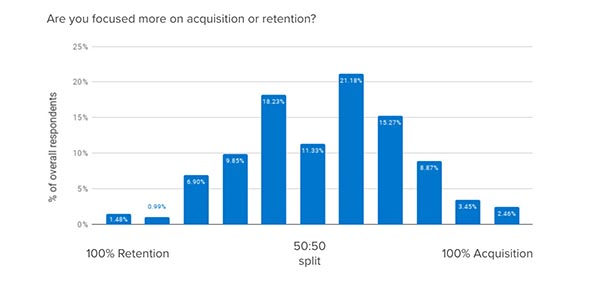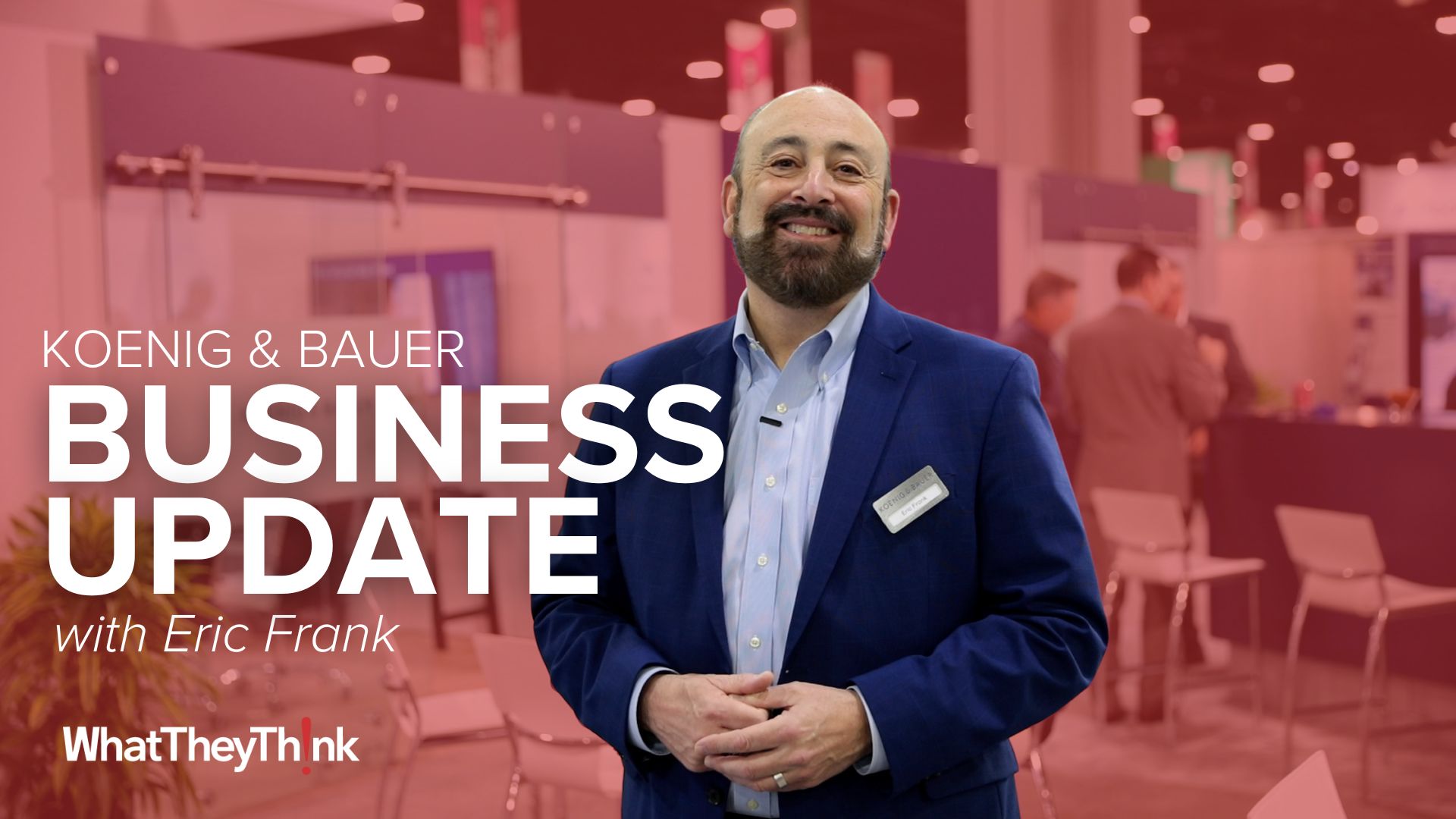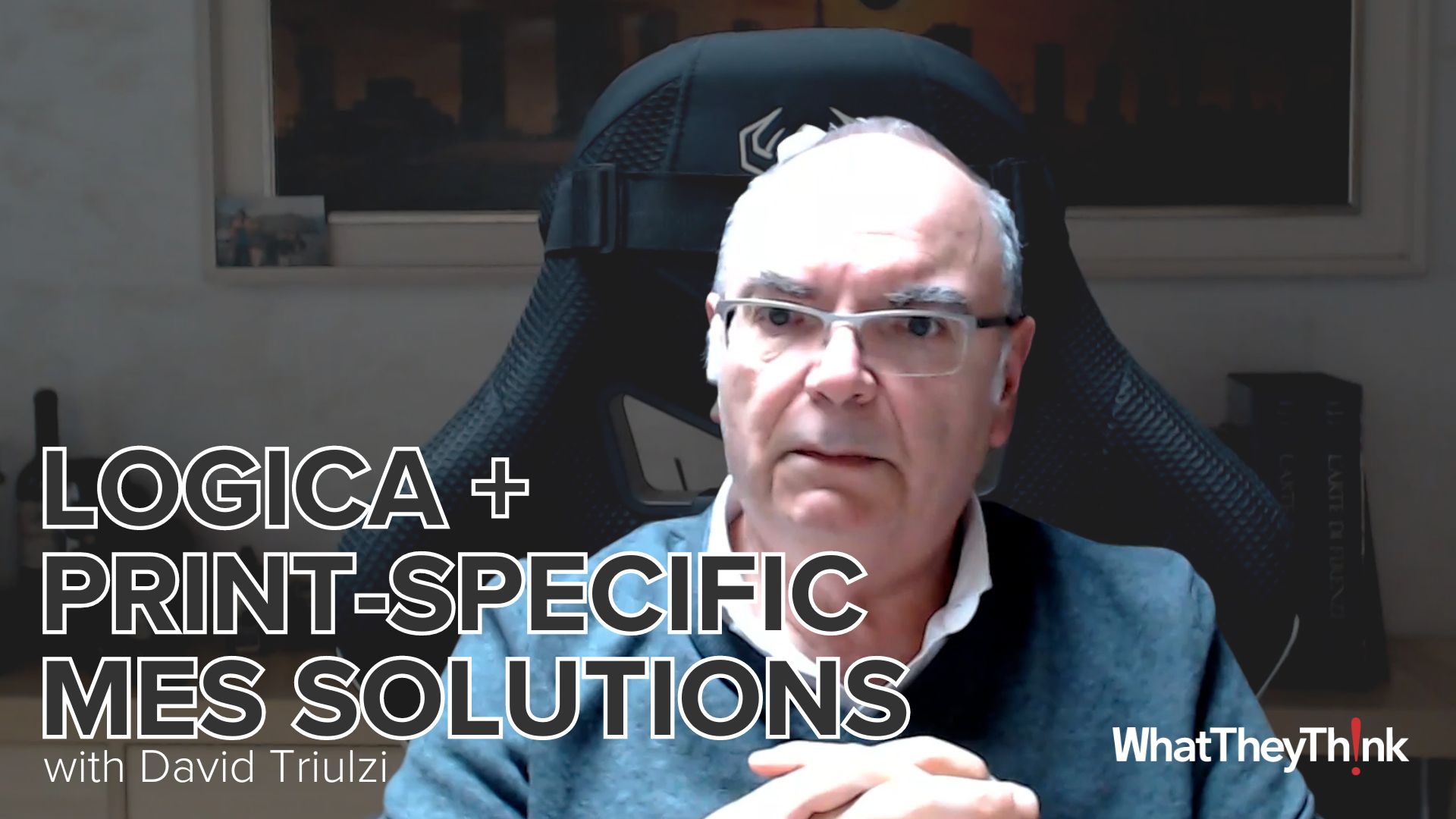It used to be that marketers were heavily focused on customer retention. We all know the metric—it costs more to acquire a new customer than to retain an existing one. Hence, heavy focus on retention makes sense. But a new survey from Yieldify, based on the responses to 200+ marketers in the United States and the United Kingdom, say that despite the increased costs of customer acquisition efforts, their emphasis will overwhelmingly be on just that—acquisition.

Notes Yieldify:
Despite the oft-cited statistic that acquiring a new customer can cost up to 5x more than retaining an existing one, more than half of marketers spend 60% or more of their efforts on acquisition...even though the success of converting an existing customer is 60-70% versus 5-20% for a new customer (and we know it’s probably even lower in the world of e-commerce).
The rest of the survey, “The State of Customer Journey Optimization,” goes on to talk about customer journey optimization, which is what Yieldify does. But my interest here is on the 53% of marketers placing more than 60% of their effort on acquisition.
What’s behind this? If customer retention is so profitable, why the lopsided emphasis on acquisition? It wouldn’t make sense that marketers want to decrease their profits. So what is it? Is it that these marketers have automated their customer retention efforts to the point that they are on autopilot? So it’s not that they see retention as less important. It’s just that it takes less focus because they’ve got systems in place to handle it.
If this is the case, then this data is really more about the adoption of marketing automation than it is about customer acquisition vs. customer retention. It also means that, as a PSP or MSP, your marketing efforts may be best served by focusing on helping you customers with the part of their marketing they don’t have figured out—acquisition—rather than the part that they think they do.
Your thoughts?










Discussion
By Patrick Whelan on Feb 20, 2019
Too many printers still trying to outrun attrition. Effective marketing is more about providing something than asking for something. A customer centric approach will help you retain and gain customers. Know Me, Trust Me, Like Me. Utilize meaningful, consistent engagement to promote awareness, brand differentiation and trust.
By Gina Danner on Feb 20, 2019
Understanding the customer journey is key. We were meeting with medium size retail store chain this week. They offer a variety of product lines and people visit their stores for a variety of reasons.
With the ease that Amazon offers, retailers are trying to better understand the customer journey and how marketing can impact that journey... especially in the under 50 year old set.
Do they use search/seo, paid internet display ads, influencer marketing, or direct mail to engage / acquire that customer? (Super excited that direct mail came up!!!) AND, once engaged, how do they create the habit of regular visits?
Marketing Automation is the sexy easy purchase decision to make, (and that doesn't mean it is easy to launch and maintain) what we need to figure out is how do we as PSPs make purchasing our programs / offerings easy and sexy...
By Bill Strobridge on Feb 20, 2019
Heidi,
I think your observations are accurate. The clients that I have utilizing our online store for multiple product categories are very happy and very unlikely to leave unless we mess up repeatedly and often. I simply work on managing the relationship and adding services while my staff handles day to day orders and follow ups. This leaves me with more time to work on acquisition. In terms of your last comment about helping clients with acquisition yes we can assist there to some sizable degree with unique direct mail and email, however an overall acquisition strategy is a huge undertaking, one which I personally do not feel qualified to address. The marketing/print/apparel/promo/trade show needs that multi location companies have are where we can shine saving them time and money, i.e. automating and standardizing the buying of said items.
By Dennis Kelly on Feb 20, 2019
It is interesting - we are seeing customers that have invested in CRM/Marketing Automation that are far more effective in triggering DM out to customers post sale, for loyalty and winback. Those that haven't invested in CRM/Marketing Automation are using Postalytics for acquisition mailings almost exclusively.
By Stan Tan on Feb 20, 2019
As a marketer in a large format printing company that targets medium to large enterprises, I focus more on acquisition than retention. The reason for that is because I can't control whether the clienet churns or not because we have account managers who takes care of the client. As a marketer, the most I could do is send out email newsletter to reduce the churn and email newsletters can only do so much to reduce churn.
Hence, I focus the majority of my efforts on acquiring leads and clients because I can make a difference there. It's a team effort here.
By Robert Godwin on Feb 21, 2019
Heidi,
Last sentence in your article nails it.
Servicing your customer's acquisition program is high value AND high margin. It screams the need for full service in regard to marketing rather than just printing. Only offering print puts you at the end of the value chain. No room for negotiation except price.
With acquisition, you are offering growth, higher profits, revenue increase. These differentiate you from those who wait for the work to come to them, and those that generate more and more work, for their customers and themselves. It should be mentioned the same skill sets work for retention programs as well.
I wonder if any printers recognize the value of the data your article is explaining. If they do, are they still printers?
By Heidi Tolliver-Walker on Feb 26, 2019
Good question, and it raises another question. What's a printer? Is it a company that does printing as one of its many services? Or is it a company whose core business is printing, with additional supporting services? It really does raise the question of what today's printing businesses are called. I don't necessarily agree with the marketing services provider (MSP) moniker unless the company is actually providing marketing development and strategy.
Discussion
Join the discussion Sign In or Become a Member, doing so is simple and free